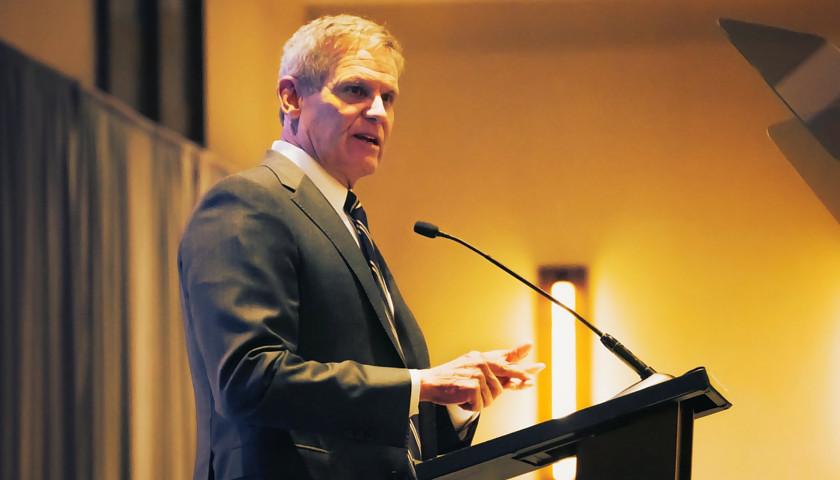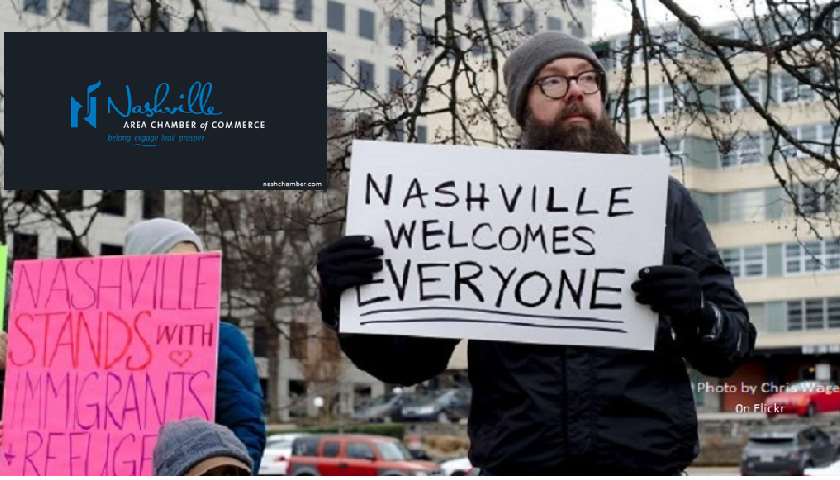Tennessee Governor Bill Lee addressed the Nashville Area Chamber of Commerce on Thursday at the JW Marriott in Nashville. In attendance of the annual event were Chamber members, economic development investors, and other Nashvillians.
Read the full storyTag: Nashville Area Chamber of Commerce
Toast, Inc. Announces New Configuration Facility in Antioch
Toast, Inc. officials announced Thursday that the company will establish its new configuration facility in Davidson County, selecting Antioch as the first location. The company expects to create more than 100 new jobs over the next five years in the greater Nashville region.
Read the full storyNashville Chamber of Commerce Could Push to Restructure the City’s Public Schools
Members of the Nashville Area Chamber of Commerce said they are displeased with the Metro Nashville Public Schools (MNPS), so much so the schools might require a dramatic restructuring — at least at the school board level. Axios reported this week that chamber members might prefer to do away with electing school board members. Instead, local government officials could appoint them.
Read the full storyNashville Chamber Calls on Metro Council to Vote For Mayor Cooper’s 32 Percent Tax Hike
The Nashville Area Chamber of Commerce wants Davidson County residents’ property taxes to be hiked 32 percent.
The chamber is urging the Metro Council to vote for Mayor John Cooper’s budget that includes a 32 percent property tax increase, the Nashville Business Journal reported.
Read the full storyRail Line Could Make Nashville Budget Sick, Unable To Fund Retiree Insurance
Retired Metro Nashville employees’ benefits are in jeopardy, one PAC says, even as Mayor Megan Barry’s supporters have no trouble raising funds from the business community to try to persuade voters to pay $9 billion for a transit system. NoTax4Tracks says in a press release that Metro Nashville has a health insurance funding shortfall for retirees to the tune of nearly $3 billion. “The good news is you are probably going to get whatever is in your pension. That part of the retirement plan is fairly well funded. The bad news is that health insurance coverage you were promised …. maybe not so much.” Health insurance, a part of “other post employment benefits (OPEB), are funded at 0 percent, the press release says, citing an October 2017 letter from Metro’s director of finance, Talia Lomax-O’dneal. The shortfall is nothing new. A Jan. 26, 2015 story from the Tennessean says the issue dates to 2002. Many of the retirement benefits are paid from the city’s budget and costs grew from 13 percent of the total property tax revenue to 25 percent in 2015. The story cites a report from The Pew Charitable Trusts that says the health care plan faces a long-term shortfall…
Read the full storyNashville Chamber of Commerce Brought Office of Refugee Resettlement’s ‘Building the New American Community’ to Music City Back in 2001
With the Nashville Chamber of Commerce in a leading role, Nashville was one of three “non-traditional gateway cities” along with Portland (OR) and Lowell (MA) chosen for the 2001 pilot project funded by the U.S. Office of Refugee Resettlement (ORR) called “Building the New American Community, A Collaborative Project on Integration (BNAC).” These three sites were determined to be in the “beginning phases of a demographic transformation” due to increases in refugee resettlement and the arrival of legal and illegal immigrants. As explained in the project’s final report authored by the Soros funded Migration Policy Institute (MPI): Nashville exemplifies characteristics typically associated with new immigrant gateway cities in the United States: strong economic growth coupled with rapid foreign-born population increases from a very tiny base of refugees and immigrants who resided in the city in 1990. Core principles of the pilot project included building coalitions, refugee and immigrant leadership, and civic engagement, including: learning about the American electoral system and the importance of voting, but also participating as partners with public agencies in the coalitions. In practical terms, refugee and immigrant organizations played a direct role in crafting policies and programs that directly influence their communities as well as the receiving community.…
Read the full storyNashville Chamber Coalition Pushes Ahead With Study Examining Tax Revenue For Transit
A pro-transit coalition of business and community leaders backed by the Nashville Area Chamber of Commerce has begun the second phase of a project studying possible sources of tax revenue. In addition to raising the gax tax to fund road improvements, the IMPROVE Act recently passed by the state legislature and signed into law by Gov. Bill Haslam allows municipalities to hold referendums on raising local taxes for transit. Nashville Mayor Megan Barry plans to have a referendum on the ballot in 2018 to raise taxes to support a tentative $6 billion regional transit plan to be phased in over 25 years. The plan would include light rail and rapid buses. Barry announced last month that a light rail project along the Gallatin Pike corridor would begin immediately. The Moving Forward coalition will examine four potential local revenue sources: property tax, sales tax, hotel/motel tax and wheel tax, according to a news release issued May 11. The study will encompass the 10-county Middle Tennessee region. Property tax was not mentioned in the IMPROVE Act but local governments in Tennessee already have the authority to increase the property tax rate. The new release said that “the study will provide multiple scenarios…
Read the full story






